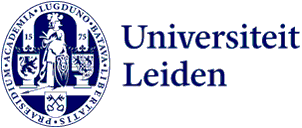Co-participation
As a student of Leiden University, you can join a number of co-participation bodies together with university staff members. Co-participation is an important democratic right that enables you to play an active role in university decision-making and advisory processes.
Co-participation bodies
At Leiden University, you can take part in the following co-participation bodies:
University & faculty councils and programme committees
University council and faculty councils are democratically elected co-participation bodies that represent both students and staff of the university and its faculties. Co-participation also takes place at departmental level through programme committees. Learn more about these councils and committees.
Leiden Assessors Committee
The Leiden Assessors Committee (LAssO) is a consultative body made up of the student members of each faculty board.
Leiden University Student Platform
The Leiden University Student Platform (LUS) is a student-led ‘think-tank’ that discusses a wide variety of topics concerning students and annually presents the Leiden Teaching Prize.
University elections
Members of Leiden University’s co-participation bodies are democratically elected during university elections.
Financial support for co-participation
As a reward for your co-participation activities, you may be eligible to request financial support.
How to request financial support
- Your faculty assessor has an overview of all student members of faculty co-participation bodies. On the basis of this, the assessor will send recommendations concerning the division of funds between all faculty co-participation body members to the Student and Educational Affairs department (SEA).
- At the end of each co-participation period, SEA will send you a decision award letter stating the number of number of months’ worth of financial support allocated to you.
- Request payment of your allocated financial support by following the procedures on the Board membership page.
Questions?
Questions about requesting financial support for your co-participation body activities? Contact your faculty assessor.
Faculty Council
The Faculty Council advises the Faculty Board solicited and unsolicited advice on all matters on Faculty level relating to teaching, research, and organisation.
Participation
Half of the Faculty Council is elected from and by the staff, the other half from and by the students. The members of the Council are elected in accordance with the regulations concerning University elections (Dutch), as drawn up by the University Executive Board.
Bachelor's Programme Committee
The Bachelor's Programme Committee (in Dutch: BOC) acts as advisor to the Board of Education. In other to ensure a broad basis for advice, the Committee includes 6 students, in addition to one lecturer for each section.
The Bachelor's Programme Committee is responsible for the constant process of adjusting and modifying the education programme, for instance, by means of education evaluations, both small-scale and large-scale. The Committee is concerned with possible overlap between courses, whether courses follow up on each other, the exact formulation of regulations for teaching and examinations, etc. Students are encouraged to participate as much as possible in the resulting reorganisations of education.
Rules of Procedure of the Psychology Bachelor's Programme Committee
Meetings
The BOC meets once a month. The sessions are open to the public. Students contribute to the BOC's activities through regular written education evaluations and evaluation panels. In addition, students can always approach members of the BOC with remarks concerning the programme.
More information
Read more on the Bachelor's Programme Committee and its members
International Student Platform for IBP students
Students of the International Bachelor in Psychology (IBP) who want to have a say in our programme are welcome to the International Student Platform IBP.
